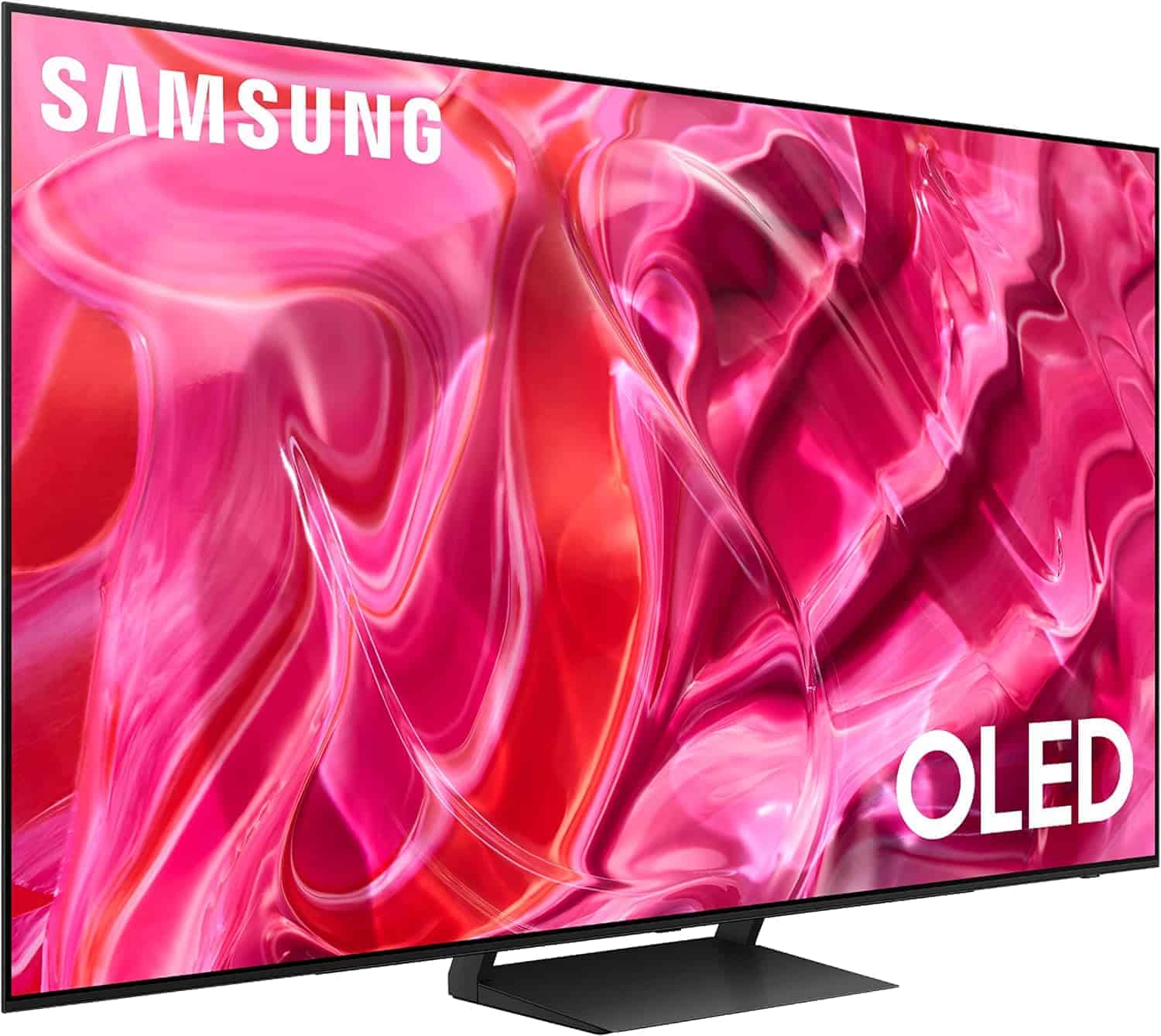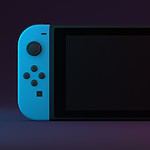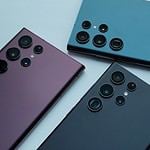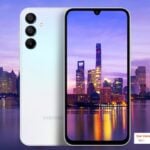When it comes to choosing a new TV, the LG C3 and Samsung S90C are top contenders. The LG C3 features the OLED evo panel, which provides perfect blacks and incredible contrast, making it great for movie enthusiasts and dark-room viewers. It also has a slightly lower price, the intuitive webOS smart platform, and a sleek, minimalist design. On the other hand, the Samsung S90C boasts QD-OLED technology, which combines quantum dots with OLED to produce a brighter picture with a wider color gamut, perfect for sun-drenched rooms and HDR content.
The S90C also has a 144Hz refresh rate, making it ideal for gamers, while the LG C3 offers superior motion handling for smoother action sequences. Both TVs have impressive smart features and sleek aesthetics, so the choice ultimately depends on your priorities: vibrant colors and brightness or deep blacks and cinematic immersion. Choosing between the LG C3 and Samsung S90C OLED TVs is a tough call, as both models offer exceptional features catering to different preferences and needs.
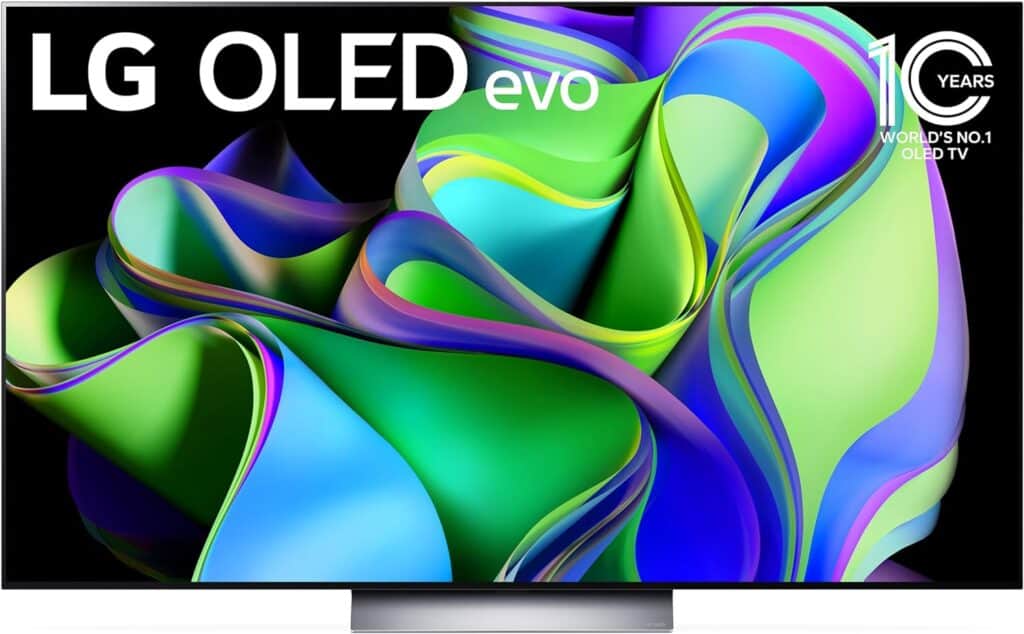
Which TV Is Right for You?
| Priority | Best Choice |
| Brightest Picture | Samsung S90C |
| Best Motion Handling | LG C3 |
| Most Immersive Audio | Samsung S90C (slight edge) |
| Best Smart TV Platform | LG C3 (webOS) |
| Lowest Input Lag | LG C3 (typically) |
| Best Value | LG C3 |
OLED TV Showdown: Which Reigns Supreme?
Both the LG C3 and Samsung S90C are top-tier OLED TVs, each boasting impressive features and performance. Let’s delve into the key differences to help you determine which is the right fit for your needs.
OLED Technology: WRGB vs. QD-OLED
Both the LG C3 and Samsung S90C use OLED technology, but with a twist. The LG C3 uses a traditional WRGB OLED panel. This means it has separate red, green, blue, and white subpixels to create the image. The Samsung S90C uses a newer technology called QD-OLED. It uses quantum dots to enhance color and brightness. This results in a more vibrant and brighter picture, especially noticeable in HDR content.
Picture Quality
The Samsung S90C utilizes QD-OLED technology, resulting in a brighter and more vibrant picture compared to the LG C3’s traditional OLED panel. However, the LG C3 still offers deep blacks and excellent contrast, making it a strong contender in terms of overall picture quality.
Brightness
In terms of brightness, the Samsung S90C takes the lead, particularly in HDR content. This makes it a great choice for bright rooms or those who prefer a more vibrant viewing experience.
Color Accuracy
Both TVs offer excellent color accuracy, but the Samsung S90C’s wider color gamut and QD-OLED technology give it a slight edge in terms of color vibrancy.
Gaming Features
Both TVs are excellent for gaming, with HDMI 2.1 ports, 120Hz refresh rates, and support for VRR (Variable Refresh Rate) and ALLM (Auto Low Latency Mode). But there are some key differences. The Samsung S90C supports 4K gaming at 144Hz, which is great for PC gamers. However, the LG C3 might offer a smoother experience overall due to its better motion interpolation. This technology makes fast-moving scenes look clearer and more fluid. Input lag is also important for gaming. Both TVs have very low input lag, but the LG C3 typically performs slightly better in this area. This means your actions on the controller will be reflected on the screen even faster.
Smart TV Platform
The LG C3 runs on webOS, known for its intuitive interface and smooth performance. The Samsung S90C uses Tizen, which is also user-friendly but may not be as polished as webOS.
webOS vs. Tizen
The LG C3 uses webOS, known for its user-friendly interface and smooth performance. It’s easy to navigate and customize. The Samsung S90C uses Tizen, which is also a good platform but might not feel as polished as webOS. Both platforms have a wide selection of apps, including popular streaming services like Netflix, Disney+, and Amazon Prime Video. You can also use voice assistants on both TVs. LG C3 supports Google Assistant and Alexa, while the Samsung S90C has Bixby built-in. Both TVs offer some smart home integration features, allowing you to control compatible devices from your TV.
Sound Quality
While both TVs have decent built-in speakers, neither will blow you away with their audio performance. The Samsung S90C has a slight edge with a 2.2.2 channel speaker configuration, meaning it has an extra up-firing speaker compared to the LG C3’s 2.2 channel setup. Both TVs support Dolby Atmos for immersive 3D audio. If you want a truly cinematic audio experience, you’ll want to connect a soundbar or a home theater system.
Design and Build Quality
Both TVs have a slim and modern design with thin bezels. The LG C3 is slightly thinner overall. Both TVs come with stands, but they have different designs. The LG C3’s stand is more compact, while the Samsung S90C’s stand has a wider footprint. Both TVs are VESA compatible, so you can easily mount them on the wall. In terms of connectivity, both TVs offer a good selection of ports, including multiple HDMI 2.1 ports, USB ports, and an Ethernet port.
Price and Value
The LG C3 and Samsung S90C are priced similarly, with slight variations depending on the size and retailer. Both TVs offer excellent value for their respective features and performance.
Comparison Table
| Feature | LG C3 | Samsung S90C |
|---|---|---|
| Panel Type | OLED | QD-OLED |
| Peak Brightness | Lower | Higher |
| Color Gamut | Excellent | Wider |
| Gaming Features | HDMI 2.1, 120Hz, VRR, ALLM | HDMI 2.1, 144Hz (PC), VRR, ALLM |
| Smart TV Platform | webOS | Tizen |
| Sound Quality | Decent | Decent |
| Design | Slim, modern | Slim, modern |
| Price | Similar | Similar |
Which One Should You Buy?
The LG C3 and Samsung S90C are both excellent OLED TVs, each with its own strengths and weaknesses. The best choice for you will depend on your individual preferences and priorities. Consider the following:
- Brightness: If you prioritize a bright and vibrant picture, the Samsung S90C is the way to go.
- Gaming: For PC gamers seeking the highest refresh rate, the Samsung S90C’s 144Hz support is a plus.
- Smart TV Platform: If you prefer a more intuitive and polished interface, webOS on the LG C3 may be a better fit.
- Budget: While both TVs are similarly priced, slight variations may exist depending on the size and retailer.
Ultimately, the best way to decide is to see both TVs in person and compare their picture quality and features side-by-side.
Key Takeaways
- LG C3 Advantages: Supports Dolby Vision, better motion interpolation, superior prevention of burn-ins, and enhanced low-resolution upscaling.
- LG C3 Disadvantages: Lower panel uniformity, less brightness than the S90C, and inferior color saturation.
- Samsung S90C Advantages: Higher brightness, better uniformity, and an effective anti-reflection filter.
- Samsung S90C Disadvantages: No Dolby Vision support, weaker motion interpolation, and less protection against burn-ins.
LG C3 vs Samsung S90C OLED TVs: Side-by-Side Comparison
| Feature | LG C3 | Samsung S90C | Winner |
|---|---|---|---|
| Display Technology | OLED Evo | OLED | Draw |
| Screen Sizes | 42″, 48″, 55″, 65″, 77″, 83″ | 43″, 51″, 55″, 65″, 77″, 89″ | Samsung (wider size range) |
| Peak Brightness (HDR) | 1200 nits | 1500 nits | Samsung |
| Color Gamut | 99% DCI-P3 | 99.9% DCI-P3 | Samsung |
| Gaming Features | VRR, G-Sync, AMD FreeSync Premium, 4K @ 120Hz | VRR, G-Sync, AMD FreeSync Premium, 4K @ 144Hz (120Hz on 83″ model) | Samsung (higher refresh rate) |
| Audio | Dolby Atmos, 2.2 channel speakers | Dolby Atmos, 2.2.2 channel speakers | Samsung (additional up-firing speakers) |
| Smart TV Platform | webOS 23 | Tizen 6.5 | Draw (personal preference) |
| Remote Control | Magic Remote (voice control, air mouse) | Standard remote (voice control) | LG (Magic Remote offers more functionality) |
| Price | Slightly lower | Slightly higher | LG (better value for price) |
| Movie Watching | Excellent picture quality, accurate colors, Dolby Vision support | Excellent picture quality, brighter HDR, wider color gamut | Draw (depends on preferences) |
| Gaming | Great performance, low input lag, VRR support | Exceptional performance, higher refresh rate, VRR support | Samsung |
Overall: Both TVs are top-of-the-line OLEDs with stunning picture quality. The choice between them comes down to individual preferences:
- Choose LG C3 for:
- More affordable price
- Dolby Vision support
- Better value for money
- Excellent for movie watching
- Magic Remote functionality
- Choose Samsung S90C for:
- Brighter HDR performance
- Wider color gamut
- Higher refresh rate for gaming
- Additional up-firing speakers for audio
LG C3: A Closer Look
The LG C3 is renowned for its Dolby Vision support, offering a cinematic experience with vibrant colors and deep contrasts. Users appreciate its motion interpolation capabilities, making fast-moving scenes smoother. It’s also a strong contender for those concerned about burn-ins, thanks to its advanced prevention technology. However, some users note its lower brightness and color saturation compared to the Samsung S90C, which might be a downside for brightly lit rooms.
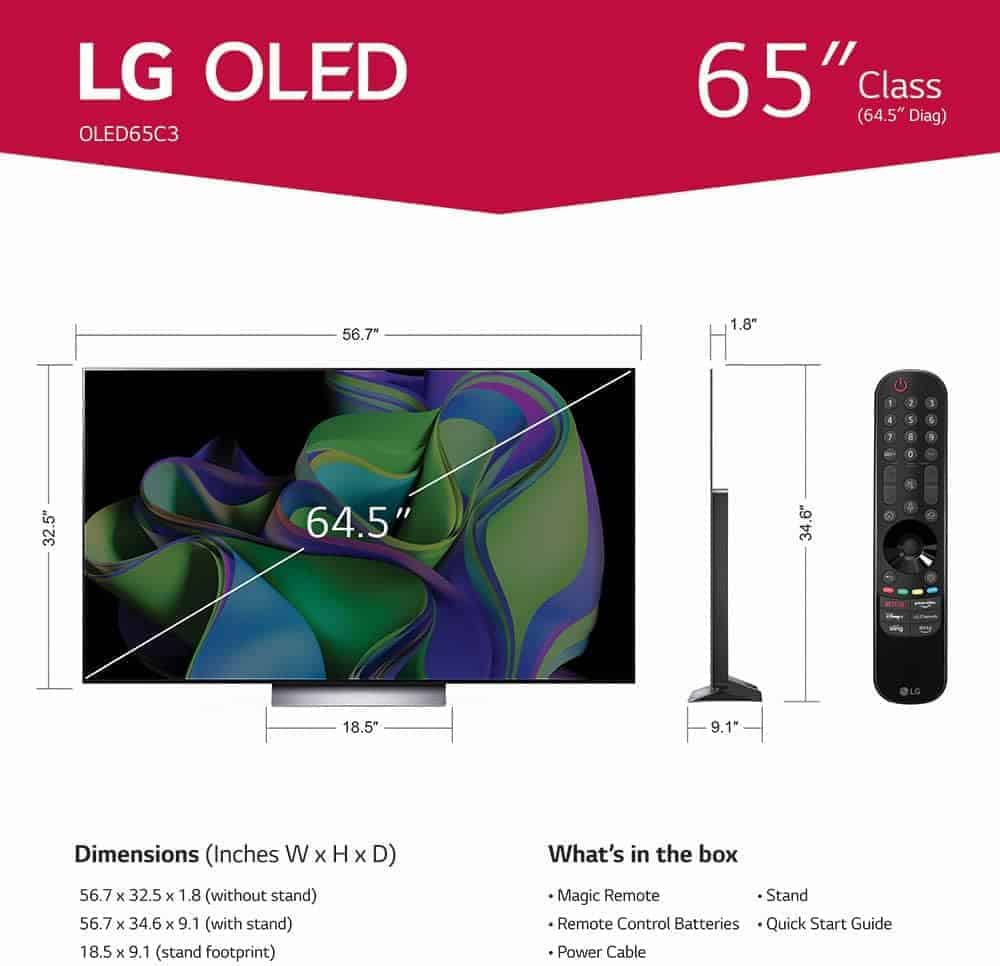
User Experience
One Reddit user, who upgraded from a Samsung KS8000, highlighted the LG C3’s superior handling of low-quality content, making 1080p and lower resolutions look impressive. This feature is particularly beneficial for streaming content, which often varies in quality.
Samsung S90C: A Detailed Examination
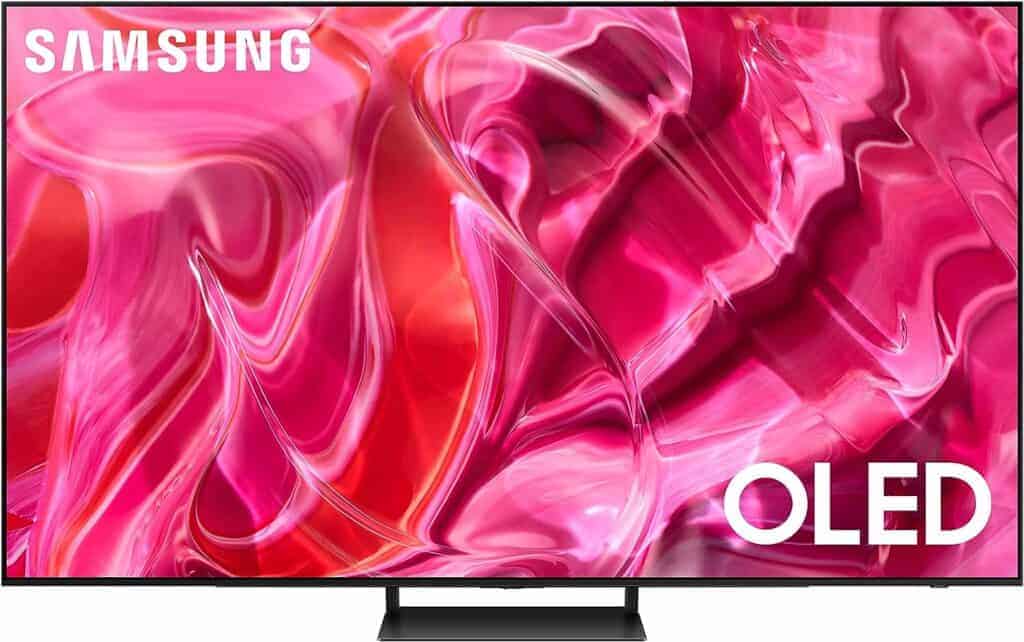
The Samsung S90C stands out with its high brightness levels, making it ideal for rooms with a lot of natural light. Its uniformity and anti-reflection capabilities are also highly praised. However, the lack of Dolby Vision and weaker motion interpolation could be deal-breakers for some. A Reddit user who recently upgraded to the S90C from a KS8000 praised its performance, indicating satisfaction with the overall quality.
Practical Considerations
For those with rooms that receive direct sunlight, the Samsung S90C’s higher brightness and better anti-reflection filter might be more appealing. However, for movie enthusiasts and gamers, the LG C3’s Dolby Vision and motion handling could be more enticing.

Price Comparison
The LG C3 and Samsung S90C are similarly priced, hovering around €1900 and €2000, respectively. This close pricing makes the decision more about features and personal preferences rather than cost.
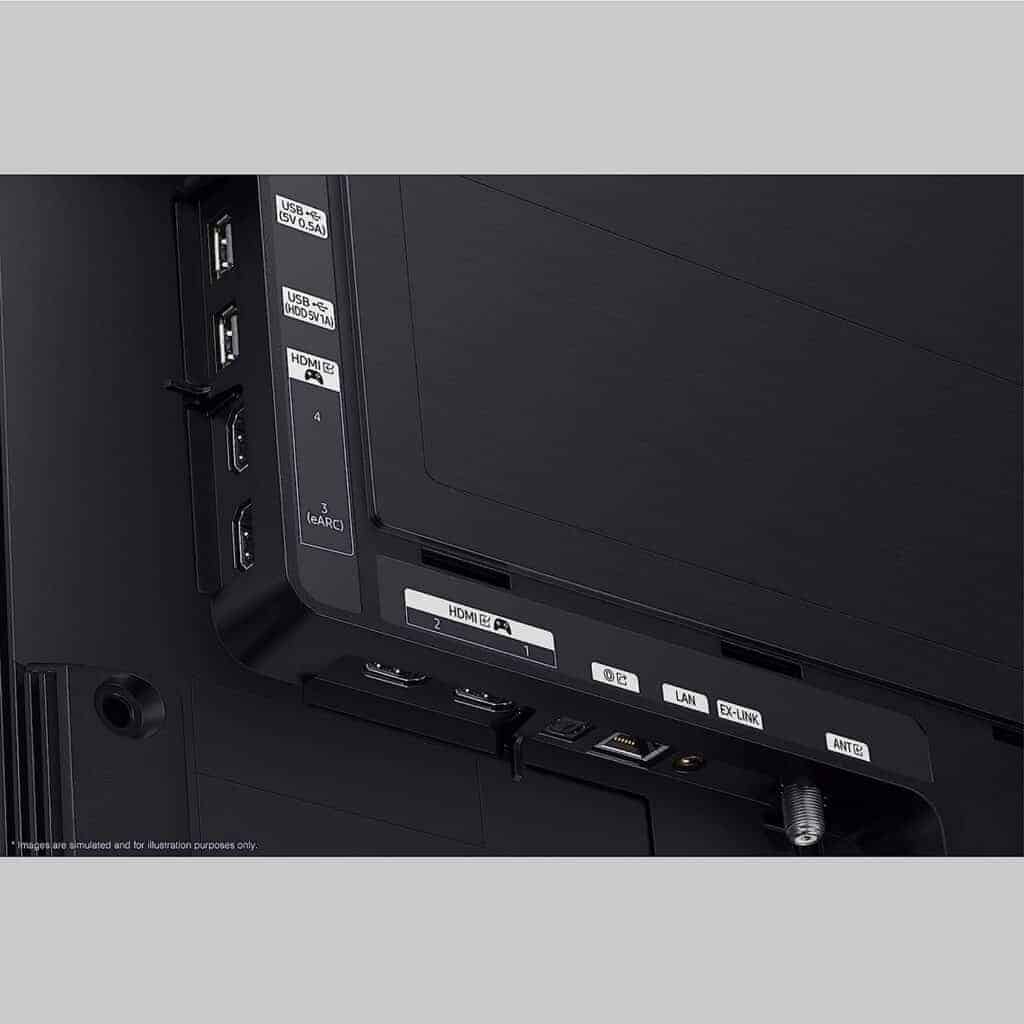
YouTube Reviews
For a more visual comparison, check out these YouTube reviews:
- Samsung S90C vs LG C3 | QD-OLED vs OLED 4K Gaming TV
- Samsung S90C vs C3 – Much Impressive!!
- LG C3 vs Samsung S90C | Best Oled 4k Tv Of 2024?
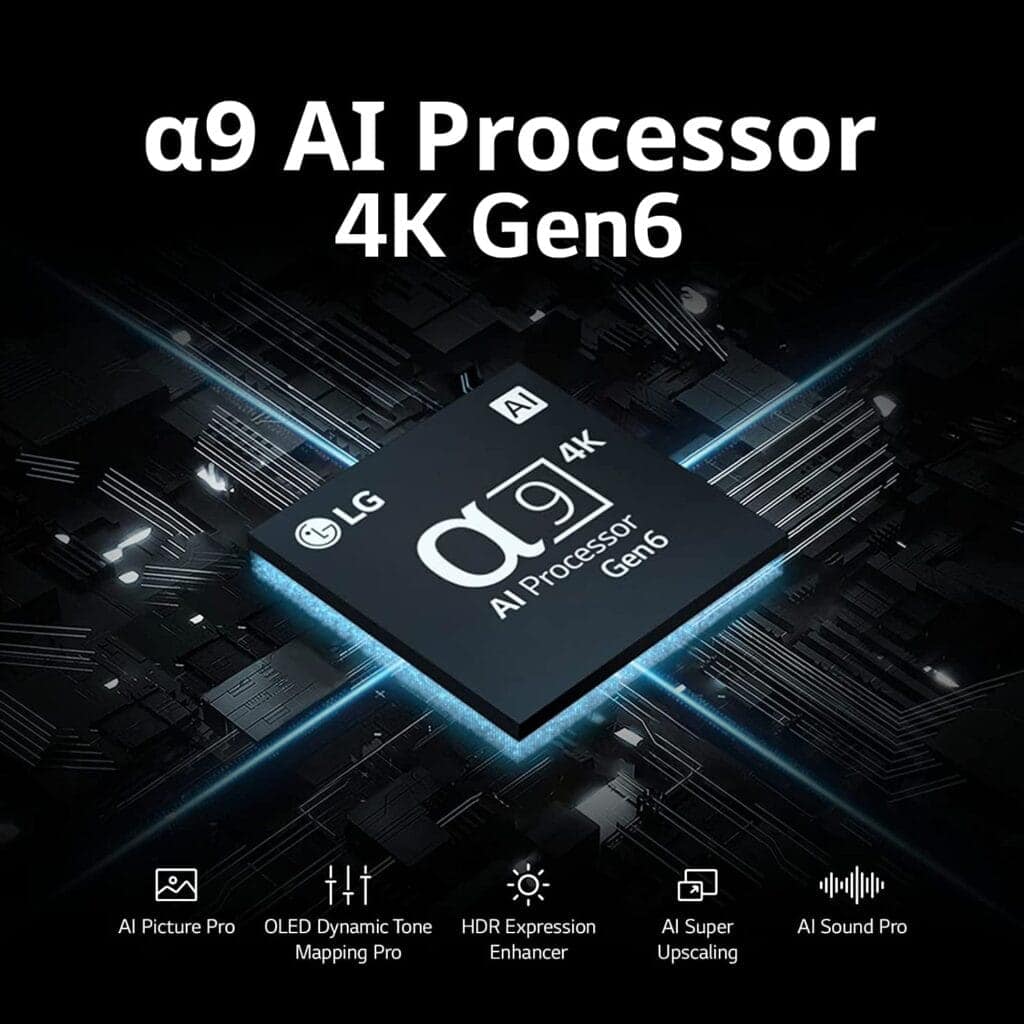
FAQs
What are the main differences between the LG C3 and Samsung S90C?
The LG C3 excels in Dolby Vision support and motion interpolation, while the Samsung S90C offers higher brightness and better screen uniformity.
Is the LG C3 or Samsung S90C better for gaming?
Both are great for gaming, but the LG C3’s better motion interpolation might provide a smoother experience.
Which TV is better for a brightly lit room?
The Samsung S90C’s higher brightness and anti-reflection filter make it more suitable for brightly lit environments.
Does the Samsung S90C support Dolby Vision?
No, the Samsung S90C does not support Dolby Vision, which is a notable advantage of the LG C3.
How do the LG C3 and Samsung S90C handle low-resolution content?
The LG C3 is known for better low-resolution upscaling, making it a better choice for watching standard-definition content.

